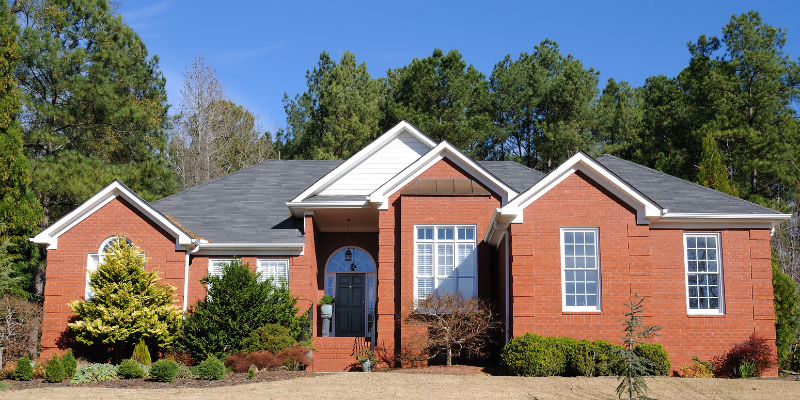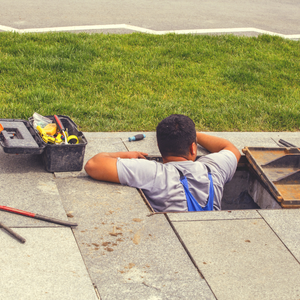
Understanding Georgia Real Estate Code Violations
Selling a home in Georgia with infractions requires knowledge. These infractions can originate from the building’s structural components, faulty wiring, or violations of the applicable local building regulations.
These breaches can significantly affect the Georgia state property market and its legal standing. Some common infractions are: zoning violations, land use permit violations, construction encroachment on protected sites, safety hazards, and environmental breaches.
Sellers need to be made aware that local municipalities enforce these regulations, as violations can lead to penalties such as fines or cancellation of the sale. Homeowners must conduct a thorough inspection to find code issues related to the property’s compliance before any sale.
With a better comprehension of how Georgia laws regarding real estate work, sellers can fix code infractions and sell their houses faster and for better prices.
Common Georgia Home Code Violations

Knowing prevalent issues is especially important when selling a Georgia home with a code violation. Many Georgia homes have undersized electrical systems, which pose a threat and require servicing to bring the system up to standard.
Many older homes have leaky piping that is not up to current standards, leading to plumbing issues. Without attending to these issues promptly, structural problems such as foundation cracks and roof damage may lead to a violation of codes. Selling a water-damaged house in such a condition can be especially challenging for homeowners.
Furthermore, numerous properties have HVAC systems and water heaters that are improperly installed and do not comply with local building regulations. Other house code violations in Georgia include mold and mildew due to water and inadequate ventilation.
Recognizing these common infractions aids in diagnosis and correcting problems before selling the property.
How to Find Code Violations in Your Georgia Home
Early detection is essential when selling a Georgia home, especially one with code infractions. Start by checking the property for code infractions such as obsolete electrical systems, plumbing, and structural difficulties.
A qualified house inspector versed in Georgia building rules may be helpful for a thorough inspection. Focus on roofing integrity and ventilation, which often fail.
Georgia building codes differ by county, so familiarize yourself with yours. Check for unpermitted construction or renovations by past owners that may not exceed safety regulations.
By finding code violations early, you can fix them, making selling your house easier and more profitable.
Hire a Professional Inspector to Find Code Issues in Georgia Homes
Hire a professional inspector to address code problems for successful real estate transactions in Georgia. A certified inspector can spot code violations that could derail your home sale.
These experts understand Georgia’s building laws and regulations, providing a thorough property evaluation. An inspector can find issues homeowners may overlook by extensively evaluating structural components, electrical systems, plumbing, and other vital areas.
Their complete inspection report reveals code violations and suggests fixes or modifications. This proactive strategy helps address compliance issues before listing and boosts buyer confidence by showing transparency and a desire to resolve difficulties.
Professional inspections can help smooth negotiations and closings by preventing surprises.
Georgia Code Violations and Property Value
Georgia code breaches can lower a house’s value, making it less marketable and costing sellers money. Code infractions alert purchasers that a home may need costly repairs or renovations.
This may discourage bidders, diminish offers, and lower the selling price. In Georgia’s competitive real estate market, unresolved code infractions may linger on the market longer than compliant houses.
Lenders may also be wary of financing properties with code difficulties, reducing the pool of qualified buyers. Georgia sellers must correct these problems immediately or risk devaluing their property due to perceived hazards.
Negotiating and disclosing code breaches can also affect home values. Homeowners who want to keep or increase their property’s worth despite transgressions must know local housing codes.
Georgia Laws Affecting House Code Violation Ignorance
Georgia residents who ignore housing code breaches can face profound legal implications. Local authorities can also fine residents heavily for these safety and structural infractions.
Municipalities may issue tickets or place liens if homeowners don’t fix these faults. Such liens must be cleared before selling, which might complicate the process.
Local government agencies may sue for compliance or financial reparation after egregious neglect. Failure to fix code violations can also affect homeowner insurance coverage, leading to cancellation or higher costs.
Outstanding infractions may dissuade buyers who face legal liabilities and costly repairs. Thus, fixing these code flaws is essential for meeting legal requirements and keeping the home marketable and valuable in Georgia’s real estate market.
How to Fix Georgia Building Code Violations Before Selling a Home

Fixing building code violations can boost a Georgia house’s marketability and smooth the process before selling. Inspections are necessary to find all code breaches, including plumbing, electrical, and structural integrity issues.
A licensed home inspector can accurately assess repairs. After identifying issues, seek local licenses and hire professionals who know Georgia’s building rules to fix them.
Ensure all repairs follow local codes to avoid liabilities and make the property more appealing to purchasers. Negotiating compliance extensions or temporary waivers with local government authorities may help ensure safety.
Documenting all corrective measures provides proof of compliance when giving information to buyers. If sellers address these concerns, they can raise buyer confidence and home value in Georgia’s real estate market.
Legal Requirements for Disclosing Code Violations When Selling Property in Georgia
You must grasp disclosure laws to smoothly sell a Georgia house with code problems and avoid liability. Sellers must disclose any material flaws, including code breaches, that could impair property value or desirability.
Sellers must accurately report building code, safety, and other regulatory compliance issues in the Seller’s Property Disclosure Statement. Failure to disclose code infractions might result in legal action or nullification of the sale.
Sellers should have a thorough home inspection to uncover code concerns and speak with a Georgia real estate attorney to verify disclosure compliance. By following these laws, sellers can build trust with purchasers and negotiate code violation corrections.
Selling a Georgia Home with Code Violations
Georgia sellers of homes with code problems must be aware and strategic. Local real estate and building codes affect discussions, so knowing them is crucial.
Sellers should get a detailed inspection report of code infractions to be transparent with purchasers. This information aids negotiations and creates trust.
One way to prepare purchasers for repair expenditures is to price the property correctly. Highlighting the home’s positives helps ease code violation fears.
Openly addressing options like repair credits or lowering prices can attract investors and fixer-upper buyers. Working with an experienced real estate professional who knows Georgia’s market and has dealt with similar properties can give sellers valuable insights and negotiation strategies for this unique situation.
For homeowners looking to skip the stress and sell quickly, Yellow Card Properties offers a hassle-free solution by buying Georgia homes with code violations for cash, no repairs or permits needed.
Georgia real estate marketing strategies for code-issued homes
Expert marketing methods are needed to sell a Georgia home with code issues. Transparency is vital; revealing code infractions builds buyer trust.
To distract from difficulties, emphasize the property’s location or unique architecture. Setting a competitive price that reflects needed repairs can attract investors seeking a fixer-upper.
Partnering with a real estate professional who handles code concerns might provide valuable insights and access to renovation-focused cash buyers. Online listings on prominent Georgia platforms with high-quality photographs and clear descriptions of the property’s qualities and weaknesses maximize visibility.
Using specialized marketing channels for real estate investors or renovation enthusiasts can boost project interest.
Georgia Homebuyers with Code Violations: Financing Options
Georgia buyers of homes with code violations face particular financing hurdles, but there are numerous ways to overcome them. Code-violating homes may not qualify for traditional loans, so alternative funding is necessary.
Buyers interested in houses that need repairs or modifications might consider FHA 203(k) loans, which include renovation costs. This option fixes code problems and boosts property value after acquisition.
Hard money loans, which are asset-based and simpler to get for hazardous properties, have higher interest rates and shorter repayment durations. The property owner may offer seller financing, which gives buyers additional flexibility to personalize their purchase to their needs.
Understanding these financing choices and dealing with knowledgeable real estate experts can make buying Georgia properties with code violations easier.
Working with Georgia Real Estate Professionals with Problematic Properties
Working with experienced real estate professionals can be invaluable when selling a Georgia house with code issues. These experts know Georgia’s housing market and code problems.
Expert professionals can advise negotiating repairs or modifying the listed price to suit the property’s condition. They typically have ties with local contractors and inspectors, which speeds up compliance repairs and certifications.
These experienced professionals can market houses with code violations as investment opportunities to attract cash purchasers or investors searching for fixer-uppers. Their experience helps them communicate with potential purchasers about the scope of work, ensuring a transparent approach that eliminates surprises during negotiations.
Real estate professionals specializing in challenging properties use their network and knowledge to help sellers close deals despite code issues.
The Role of Local Government and Permits in Addressing Housing Code Problems in Georgia
Understanding local government and the permitting process is essential when selling a Georgia house with code issues. Local government organizations enforce housing standards for safety and compliance, which might hurt your property’s value.
In Georgia, resolving these concerns frequently begins with permits to fix violations. Sellers can determine necessary repairs by engaging with local authorities and code enforcement.
Submit thorough designs for evaluation and approval to ensure renovations follow local building codes. Communication with local officials speeds up this process, making it easier to settle difficulties before selling the residence.
Many local governments offer code compliance materials or information, which can help avoid fines or sales delays. Assuring buyers of legal compliance and safety standards smooths negotiations and enhances property value.
Cost Estimation: Repairing or Selling Violation-Coded Homes

Georgia homeowners with code violations should weigh the cost of repairs against the benefits of selling the property ‘as-is.’ Repairing code violations can be expensive, requiring homeowners to fix structural damage, electrical issues, and plumbing failures. These costly repairs require updating the home to current construction requirements.
Selling ‘as-is’ avoids these costs but may lower the property’s sale price due to its condition. To make an informed selection, residents should get precise repair estimates from qualified contractors and compare them to market values for properties sold without code violations.
Understand Georgia real estate trends and consult a real estate professional knowledgeable about properties suffering similar troubles to learn how much buyers may reduce for these issues. This research helps sellers decide if renovations are worth it vs accepting offers from purchasers eager to buy despite the property’s condition.
How Environmental Laws Affect Property Sales with Compliance Issues in Georgia
Knowing how environmental laws affect property transactions is vital when selling a Georgia house with code violations. Georgia’s ecological restrictions can affect sales, especially if compliance is an issue.
Potential purchasers and regulators may scrutinize properties that don’t meet environmental criteria. Sellers must be aware of ecological compliance requirements, including hazardous materials and land use limitations, which can affect marketability and property value.
Environmental violations can delay closing or require costly remediation before a sale. Buyers are apprehensive of houses with outstanding infractions due to legal risks and future code compliance costs.
Thus, sellers might consider a professional assessment to detect compliance issues with Georgia’s local and federal environmental standards. This would provide transparency and ease the transaction by addressing buyer concerns.
Can You Sell a House with Unpermitted Work in Georgia?
Georgia allows unpermitted house sales, but it requires strategy and expertise. Unpermitted work—renovations or modifications without building permits—may violate codes.
Disclose all unpermitted work to potential buyers to maintain confidence and transparency when selling such a property in Georgia. A code-violation-experienced real estate professional can assist in pricing the property and negotiating with purchasers whom the lack of permits may deter.
Sellers may retrospectively seek permits or bring the property up to code before advertising it. Credits or a lower sale price may encourage consumers to resolve these concerns after purchase.
Knowing local laws and engaging a real estate attorney can help you sell a Georgia house with unpermitted renovations smoothly.
How Long Are You Liable After Selling a Home?
Georgia homeowners selling houses with code infractions must grasp the liability timeframe for post-sale issues. Depending on the offense and the sales contract, sellers may be liable for unreported flaws or code breaches beyond the closing date.
Sellers should know buyers may sue for severe code violations after the sale. To reduce long-term liabilities, sellers should disclose known code violations during negotiations and include proper documentation in disclosure statements.
A real estate attorney versed with Georgia’s property disclosure and seller liability rules can add peace of mind. Understanding these professional tactics helps sellers sell houses with code infractions while avoiding legal risks.
Does Unpermitted Work Make Houses Hard to Sell?
Selling a Georgia house with unpermitted construction is challenging but feasible. Selling a home with code problems or unpermitted renovations requires special handling.
Homebuyers are leery of homes that need major renovations or violate local construction rules. Expert tactics can help.
Sellers must disclose unpermitted work and code infractions. Working with a real estate professional with experience with such properties might help alleviate buyer worries.
Offer repair credits and price the home competitively to reflect its condition to attract more buyers prepared to take on the project. Before listing, acquiring retroactive permissions or working with local authorities to fix code infractions may improve marketability.
Selling a Georgia house with unpermitted remodeling involves careful planning and strategy, but it’s possible.
What Must Be Disclosed When Selling a House Georgia?
You must understand disclosure standards for a successful Georgia house sale, especially one with code issues. Sellers must disclose material flaws that affect property value or desirability.
This covers plumbing, electrical, and structural issues. Sellers must disclose code problems to buyers for houses with them.
Georgia seller disclosure rules require notification of building code and zoning breaches before closing. Failure to disclose major issues with such properties might cause legal problems and imperil the sale.
Hiring a real estate attorney versed in Georgia’s disclosure rules can help you list your property. You comply with state law and develop buyer trust by disclosing code breaches and other relevant issues, making the sale process easier even in difficult situations.
Want to skip the hassle of selling a home with code violations? Yellow Card Properties buys houses as-is for cash in Savannah, making it easy to sell quickly without repairs, inspections, or delays. Contact us at (904) 539-4420 to get your cash offer today!
Helpful Georgia Blog Articles
- Navigating House Sales Before Divorce In Georgia
- Maximize Your Profit: Selling A House As-is In Georgia
- Effective Strategies For Selling A Hoarder House In Georgia
- How To Successfully Sell Your Home During Foreclosure In Georgia
- Strategies For Selling A House With Code Violations In Georgia
- How to Sell Your House Rent-to-Own in Georgia
- Capital Gains Tax After Selling a House in Georgia
- Can I Switch Real Estate Agents in Georgia?
- How To Sell A Condemned House in Georgia
- Can An HOA Foreclose On A House in Georgia
- For Sale By Owner Buyers Agent Commission in GA
- Can You Live In A House During Probate in GA
- Taxes When Selling An Inherited House in GA

| ATLANTA, GA | ATLANTA GEORGIA | MARKET PRICE | ENVIRONMENTAL RISKS | REALTORS | LAWYER |
| TAXES | TAX | TAX SYSTEM | HOMEBUYERS | APPRAISAL | |
| PROPERTY APPRAISAL | HEALTH | HEALTH HAZARDS | ZONING LAWS | PLUMBING SYSTEMS | PAINT |
| HEATING, VENTILATION, AND AIR CONDITIONING (HVAC) | FORECLOSURE | DATA | CONTRACTS | PASSWORD | FULL DISCLOSURE |
| WIRING | ELECTRICAL WIRING | ELECTRICAL CODE | CONSTRUCTION | BATHROOM | GFCI OUTLETS |
| GROUND-FAULT CIRCUIT INTERRUPTERS | HEALTH AND SAFETY | LEAD PAINT | LEAD-BASED PAINT | KITCHENS | HEADACHE |
| FIRE SAFETY |
![We Buy Homes [market_city]](https://image-cdn.carrot.com/uploads/sites/55043/2024/08/We-Buy-Homes-1321x800.png)
